SUMMARY
This is AI generated summarization, which may have errors. For context, always refer to the full article.
![[ANALYSIS] Beware the Maharliscam](https://www.rappler.com/tachyon/2023/06/maharlika-fund-TL-june-2-2023-2.jpg)
There’s no other way to call it. It’s a scam. It’s the Maharliscam.
On May 31, 2023, after a flurry of midnight Senate deliberations and a bicameral conference committee meeting, Congress passed the final version of the Maharlika Investment Fund bill. Now it’s just waiting for the signature of President Ferdinand Marcos Jr.
Lawmakers are deluding themselves by thinking that they’ve put in place all possible provisions to ensure that Maharlika will be profitable and won’t be subject to abuse.
For instance, there’s nothing at all in the bill to ensure that Maharlika will reap significant returns on investment, over and above the significant costs it will entail.
The 1987 Constitution requires that every new government-owned and controlled corporation (GOCC) created should pass the “test of economic viability.” By failing to prove Maharlika’s economic viability, did lawmakers violate the Constitution?
Setting up this kind of sovereign wealth fund now is also ill-timed because the global economic environment is still sour. Inflation and interest rates remain elevated, and growth is still anemic in many parts of the world. Eking out significant returns will be a moonshot (suntok sa buwan).
A threat to the public coffers
Unsettlingly, Maharlika also stands to endanger the public coffers. It may end up wasting billions of pesos not just in taxpayers’ money, but also depositors’ money in state-owned banks, as well as the profits of the Bangko Sentral ng Pilipinas (BSP).
From a capitalization of P75 billion in the House bill, the Senate increased Maharlika’s authorized capital to a whopping P500 billion.
Where will Maharlika get that money? Part of it will come from state-owned banks (Land Bank of the Philippines and Development Bank of the Philippines), the net profits of the BSP, proceeds from privatization, earnings of PAGCOR, and taxpayers’ money.
Lawmakers inserted (and are in fact proud of) a provision banning the Government Service Insurance System (GSIS) and Social Security System (SSS) – as well as other government financial institutions – from investing in Maharlika. But in the final bill, there’s nothing to prevent the GSIS and SSS from buying debt issued by Maharlika.
In short, the funds of GSIS and SSS – and therefore the pensions of workers in both public and private sectors – could still be exposed to the risky investments of Maharlika.
By taking money away from the BSP, Maharlika will also invariably delay the BSP’s own capital-raising efforts. While Maharlika is allowed P500 billion, BSP is struggling to raise its capital of P200 billion. Roping in the BSP this way could compromise the BSP’s ability to fulfill its mandate of ensuring stable prices and regulating banks.
Another source of risk is the fact that Maharlika can issue debt: that is, borrow funds from the public. Even if the Senate bill says that the government won’t guarantee or shoulder debts of Maharlika, it still imperils the money of creditors and the sources of seed capital. Who will want to lend money if this is the case?
Lawmakers also failed to fix the Maharlika’s deranged governance structure. The red flags are just endless, no?
Literally 100% of the members of the board of Maharlika Investment Corporation, as well as members of its advisory board, are presidential appointees. This is very bad and in fact violative of the Santiago Principles, a set of 24 principles that should guide sovereign wealth funds (SWF) worldwide.
(Principle No. 9 says that “The operational management of the SWF should implement the SWF’s strategies in an independent manner…”) Even so-called “independent directors” are not so independent, because they’re also presidential appointees.
This will open a Pandora’s box. For instance, what if the President nudges the board to approve investments in the businesses of people close to him? This will be reminiscent of the concessions and privileges received by cronies during the Marcos dictatorship. History will repeat itself.
In addition, most of the officials who will constitute Maharlika’s risk committee are also appointees of the president. This committee is supposed to identify and flag the risks facing Maharlika. If they are not independent enough, the Board of Maharlika may turn a blind eye to risks, ending up in significant losses that burn public funds.
The hiring of fund managers, analysts, and other people who will oversee Maharlika is also exempted from the Government Procurement Reform Act. This could pave the way for astronomical salaries and fees and bonuses. People will surely be jostling for these posts.
Calling out the economic managers
The Maharlika bill is soaking wet with many other dangerous provisions. We’ve just looked at the tip of the iceberg.
No wonder Filipino economists far and wide are vehemently opposed to Maharlika. A number of us have been vocal on traditional and social media about our myriad reservations and objections.
In fact, the only economists I know really pushing these are the economic managers of Marcos himself, as well as one economist-turned-lawmaker.
Sadly, the economic managers of Marcos, PhD-wielding technocrats, literally stood by in the Senate plenary session as lawmakers were railroading the Maharlika bill. In many other occasions, they had defended Maharlika despite all the red flags.
Finance Secretary Benjamin Diokno, a professor emeritus of the UP School of Economics (UPSE), taught public economics for a long time. He should be the first to see the risks posed by Maharlika on our public coffers. (Ironically, he’s also calling for sound fiscal management by reforming the pension system of military and uniformed personnel.)
Socioeconomic Planning Secretary Arsenio Balisacan, my former boss at NEDA some years back, dismissed fears that Maharlika might further increase debt. (He called the capitalization of Maharlika, P500 billion, as “small.”) He also sees Maharlika “as another vehicle for sources of financing for investments.”
This, even if lawmakers failed to prove Maharlika’s economic viability, and even if Maharlika threatens to bypass the NEDA board in key investment decisions, particularly relating to infrastructure.
BSP Governor Felipe Medalla, another longtime professor and former dean of UPSE, is one of the smartest people I know. Despite initial reservations last year, he has since fully leaned in to support Maharlika, even if the fund unfortunately erodes the independence of the BSP. He’s stepping down in July, and there are rumors he might be reappointed (if possible). Resisting Maharlika based on principle could be a memorable way for him to end his term as governor.
I can only think that in some other part of the multiverse, they would’ve done their job as economists and protected the interests of the Filipino public by opposing a bill as abhorrent and dangerous as this one. – Rappler.com
JC Punongbayan, PhD is an assistant professor at the UP School of Economics and the author of False Nostalgia: The Marcos “Golden Age” Myths and How to Debunk Them. JC’s views are independent of his affiliations. Follow him on Twitter (@jcpunongbayan) and Usapang Econ Podcast.
1 comment
How does this make you feel?

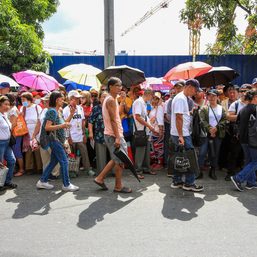

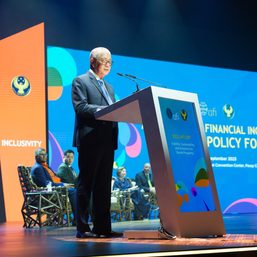

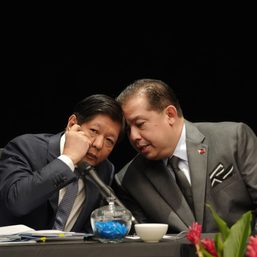
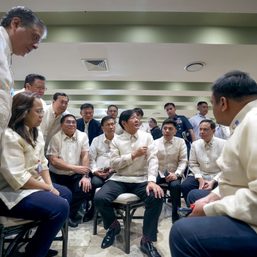
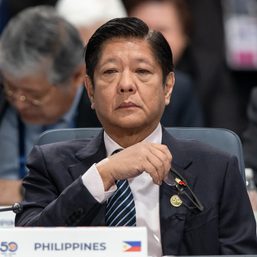
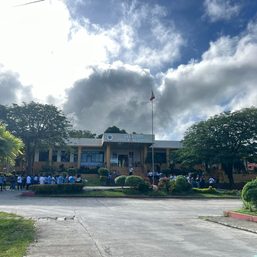




![[Newsstand] The Marcoses’ three-body problem](https://www.rappler.com/tachyon/2024/04/tl-marcoses-3-body-problem.jpg?resize=257%2C257&crop=451px%2C0px%2C1080px%2C1080px)
![[Edgewise] Preface to ‘A Fortunate Country,’ a social idealist novel](https://www.rappler.com/tachyon/2024/02/a-fortunate-country-february-8-2024.jpg?resize=257%2C257&crop_strategy=attention)
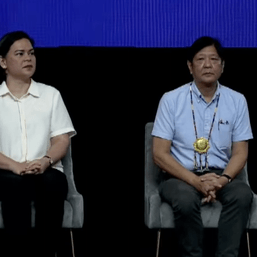
![[EDITORIAL] Kamaynilaan para sa tao, hindi para sa mga sasakyan](https://www.rappler.com/tachyon/2024/04/animated-traffic-april-2024-carousel.jpg?resize=257%2C257&crop=410px%2C0px%2C720px%2C720px)
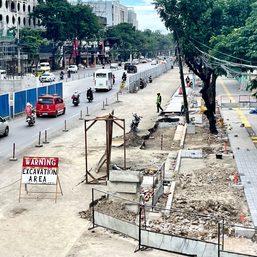


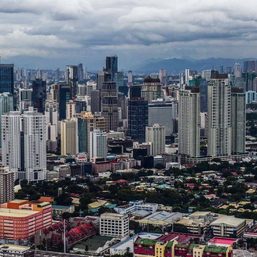

![[Vantage Point] Philippine economic reforms run into headwinds](https://www.rappler.com/tachyon/2024/05/ph-economic-headwind-may-2024.jpg?resize=257%2C257&crop_strategy=attention)
![[In This Economy] El Niño-nomics: How intense heat is drying up the Philippine economy](https://www.rappler.com/tachyon/2024/05/TL-El-nino-nomics-May-3-2024.jpg?resize=257%2C257&crop=264px%2C0px%2C720px%2C720px)
![[In This Economy] Is the Philippines quietly getting richer?](https://www.rappler.com/tachyon/2024/04/20240426-Philippines-quietly-getting-richer.jpg?resize=257%2C257&crop=194px%2C0px%2C720px%2C720px)
Thanks to Prof. JC Punongbayan’s article on the “Maharliscam.” It is sad to note that PHD-welding economists succumbed and surrendered to political pressure and subordinated the interests of the Filipino people to that of their personal interest in maintaining their careers. God bless those “collaborator economists”, corrupt politicians and the Filipino People (especially the “bobotantes”). Again, thanks to Prof. JC Punongbayan for this insight on the “Maharliscam.”